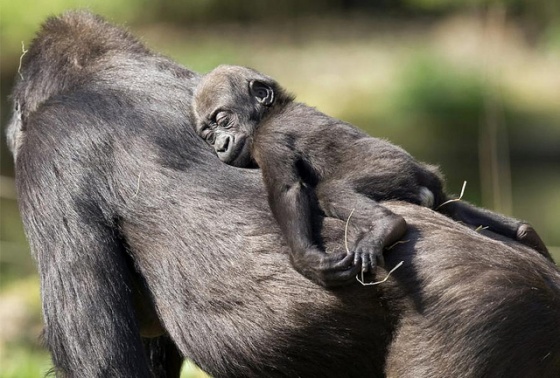
Brandon Wiggins, Author and Conservationist
The unique thing about humans is that they are the only species—on this entire planet—that has the psychological ability to be dissatisfied with their lot in life.
Plants make the best of their situation—even ones of horrendous adversity—and either try to survive or disseminate progeny in a last-ditch effort to perpetuate the species.
Sea life attempts to adapt to climate change and pollution—even the floating islands of plastic detritus the size of Texas—sometimes surprising us their resilience.
Terrestrial creatures attempt to adapt but are hardwired to do so over multiple generations—not decades. Yet still they seem to survive with what Providence has thrown them. Well, that is except the most intelligent and sentient beings such as whales, dolphins, upper (perhaps most) primates, and elephants. Surely there are many more intellectually aware species (I, for one vote for octopi—I NEVER eat tako at the sushi bar). However, anthro-egotistical views and the overall analysis based on the separation between what is researched on a scientific level and what is felt on a human emotional level (a trait for which I don’t think we own the patent), seems to prohibit that the two shall meet.
It is improbable that any of these creatures whine about what they don’t have. It is highly doubtful that the Silverback Gorilla is upset that he does not live in Pompano Beach—or wherever. I recently saw a video of an eco-tourist hotel in Rwanda (I can’t wait to go!) where a guest was the unwitting new family member of a troupe of gorillas, mother, babies, dad, and all. It was one of the most amazing YouTube videos I’ve seen.
The primate family waltzed through the eco-village like they belonged there, grooming the man’s head and body. The human village welcomed these indigenous neighbors. The gorillas didn’t want for anything.
So why is it that many, perhaps most, humans (including myself) want more? Why does man/woman perpetually seek to improve his/her lot in life?
In actuality, this is perhaps what separates us from the rest of the mammals and certain cephalopods. Humans strive for more. This is how we have “come so far so fast”(“The End of the Innocence,” lyrics by Don Henley, made famous by the Eagles). In the grand scheme of things, this is both a curse and a blessing for earth. In the hunt for keeping up with the Jones’s, humans have lost touch with the reality of this tiny planet and its finite resources. What we do have, as a species, is incredible. The knowledge and resources available to Homo sapiens is unparalleled to anything that has ever been contributed to intelligent life as we know it.
So why is it that we want more? It is engrained in our DNA, hard wired—as it were. That is a good thing as long as education is the primer. Resources on this planet are infinitely finite. An old Quaker saying is that “one should not have what one wants, one should want what one has.”
And what one has is fleeting.